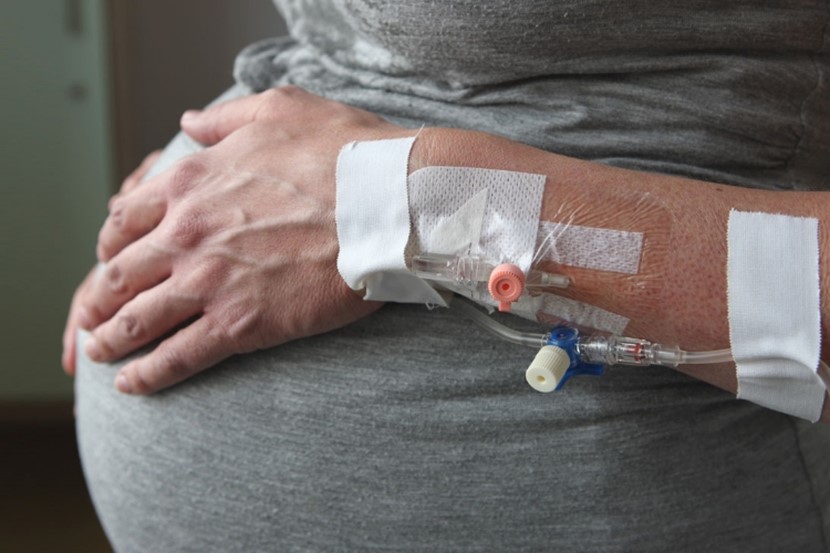When morning sickness gets serious

It's the bigger, and much badder, cousin of morning sickness, that many women suffer from, sometimes enough to need hospitalisation: here's what you need to know about hyperemesis gravidarum.
Most women experience some degree of morning sickness in early pregnancy: nausea, vomiting and exhaustion are all common pregnancy side effects in the first trimester and usually ease around twelve or thirteen weeks. But for a few unlucky women, morning sickness becomes so severe that they are unable to function normally, and in some cases even end up in hospital because they become dehydrated from persistent vomiting.
What these women experience is more than just morning sickness, it is called Hyperemesis Gravidarum, a condition which if left untreated can potentially be fatal.
|
Signs that morning sickness may be becoming hyperemesis include: |
If you suspect you may have hyperemesis, consult your doctor or midwife immediately. Whilst there are no known cures for hyperemesis, it can be managed, and leaving it untreated can be very dangerous. If you become too dehydrated your vital organs can begin to shut down, and worst case scenario can lead to death.
The first thing your doctor will do is check your urine for the presence of ketones. If ketones are present it is likely you will need to be hospitalized for treatment. If no ketones are present your doctor will keep a close eye on your condition to ensure you don't become further dehydrated and he or she may prescribe anti-emetics (anti-nausea medication) to help control the vomiting. These are usually tablets, but if you are unable to keep tablets down your doctor may prescribe suppositories instead.
If you are admitted to hospital, you will most likely be treated using intravenous fluids to rehydrate you and intravenous anti-emetics to help stem the vomiting. You may also need to be given extra supplements such as intravenous potassium or oral multi vitamins to ensure that you and your baby are getting enough nutrition.
In extremely severe cases where intravenous treatment isn't sufficient or the vomiting continues over an extended period of time, doctors may also try a naso-gastric feeding tube directly into your stomach.
Some women who experience hyperemesis gravidarum find that it improves as the pregnancy progresses, usually by around 20- or so weeks, but many find that it persists into the third trimester and even right up until delivery. It is usually most severe during the first fourteen weeks.
As well as the physical cost of hyperemesis on your body, it can also be an incredibly difficult time mentally and emotionally. The constant physical illness is draining and can make it impossible to enjoy the pregnancy, and some women are reluctant to consider another pregnancy after suffering hyperemesis in an earlier pregnancy. Women who experience hyperemesis also report a higher rate of postnatal depression. If you feel that you are struggling to cope, speak to your doctor or midwife. He or she will be able to offer support and advice, and refer you on if necessary.
When contemplating another pregnancy it is possible to put strategies in place to ensure that hyperemesis doesn't get out of control such as starting anti-emetics early in the pregnancy and ensuring you have plenty of support during the first few weeks which are usually the most difficult.

